Used Over and Over Again Synonym
1 / 13
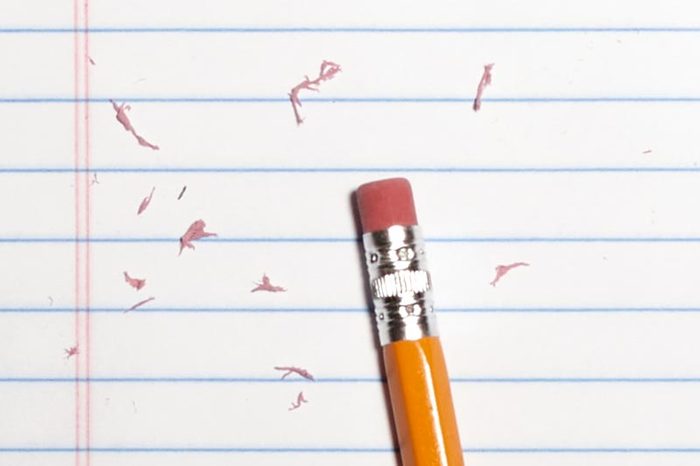
Put it in writing
Good writing is considerate of its audience. You want to think about your reader and consider the best way to get your message across to them. Even in the digital age, the right word elevates your writing and the wrong one drags it down. If you're writing in a business context, you want to make a good impression and come across as professional. You want to be efficient, but not overly dry. While keeping your writing clear of grammar and spelling errors is a given, you'll also want to use words that avoid cliche and relay your message with aplomb. You'll also want to avoid these 12 overused words that make you sound boring.
2 / 13
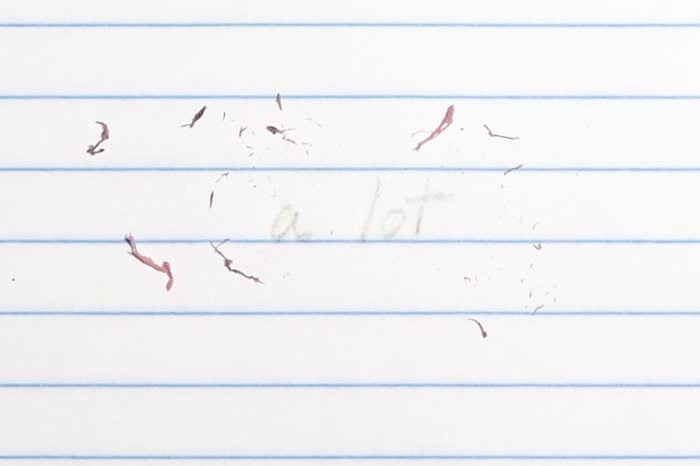
Instead of using "a lot"
A lot is a descriptor that skews ultra-casual. If you describe your background by saying, "I have a lot of experience," or convey your aptitude with "I have a lot of ideas," you come across as too laid-back and imprecise. Laura Hale Brockway, at Entrepreneur, offers 32 alternative synonyms for "a lot." She offers descriptors like " a great deal" or "a copious amount" as a stand-in for the informal term. Choose a synonym that elevates your message and offers precision like "myriad" or "several."
3 / 13
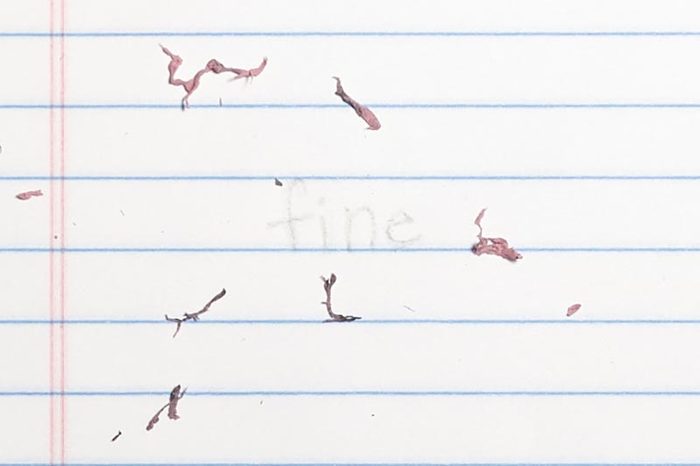
Instead of using "fine"
"Fine" is a rejoinder to questions about either quality or physical health. However, it's become so common that it now means "OK" or "average." If you're writing in a business setting or descriptively, "fine" seems polite, but there are other options that can get specific about what you're describing. A simple synonym is "well," as in "I'm feeling well." You can also use synonyms like "exceptional" or "skillful" to describe quality. If you do mean "fine" in the sense of passable, use "mediocre" or "average" instead. Need more synonyms? Here are 50 words you think are synonyms but aren't.
4 / 13

Instead of using "very"
Very is a qualifier that's often overused. How many times have you peppered emails or business communications with this word? Have you ever written "I'm very excited about the upcoming project" or "Your work is very good?" Eliminate "very" unless it adds necessary and real meaning to the idea you describe. If it's important then use synonyms for "very" like "remarkably," "substantially," "emphatically," or "profoundly." Otherwise, using "very" adds sloppy imprecision to your writing. Try one of these 10 old-fashioned words if you want to sound smarter.
5 / 13
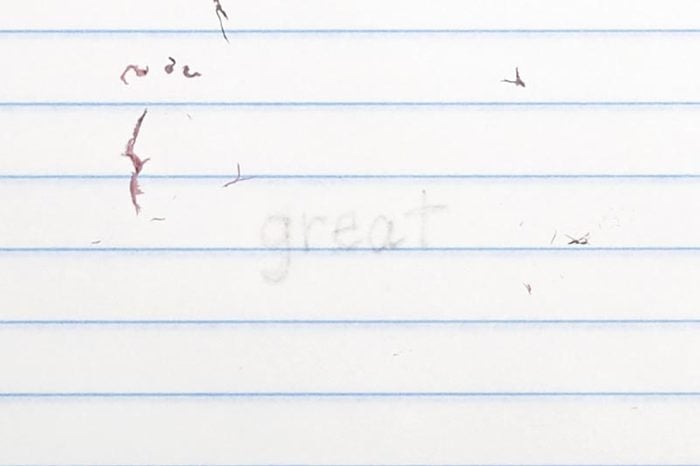
Instead of using "great"
Great is a superfluous term that often shows up in place of "yes" or "good" in written writing. It's a shorthand term that conveys enthusiasm but has become so common that it's lost its nuance as a descriptor. Consider more precise words like "choice" or "breathtaking" to describe a state of being or an object's quality. Here are some more options from Daily Writing Tips like "deluxe" and "favorable" that get closer to the idea you're trying to convey. Looking for more great synonym options for words like great? Here are 30 choice slang words from 2019.
6 / 13
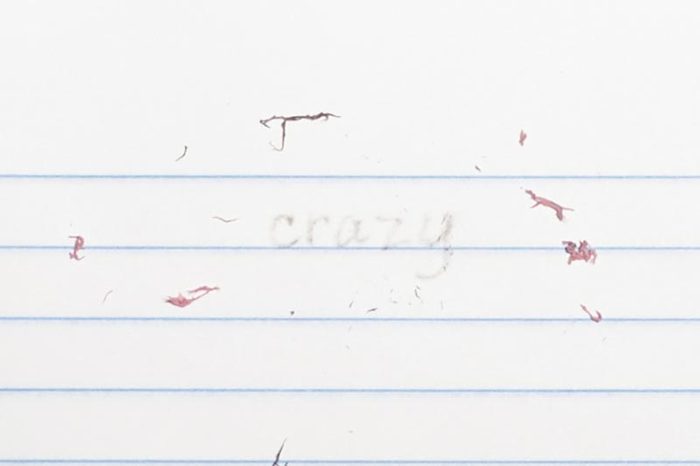
Instead of using "crazy"
Using "crazy" (or "insane") is common, but it's an imprecise way to express what you really mean. Katie Dupere at Mashable explains that the term is insensitive and makes light of mental health issues. The term is also far from what you mean to say. Look carefully at what you're actually trying to convey when you write, "The midterm was crazy" or "The project was insane." It's best to stay away from casual idioms in formal writing. You also want to stay mindful about how such terms could affect your reader. Consider words like "busy," "intense," "erratic," and "wacky" as synonyms. Let the idea of what you truly want to convey be your guide. Check out these 10 words that mean the opposite of what they used to mean.
7 / 13

Instead of using "thing"
Thing is one of those nouns that is crucial, but also overused. It often shows up in writing as a placeholder for a range of ideas and objects that are indeterminate. Do you ever write things like "I have things to do or things on my mind?" When writing, see if you can use a more precise term in place of thing. Consider synonyms like "concern," "element," "concept," "matter," "situation," "detail," or "factor." These synonyms elevate your writing. You'll come across as more formal and exact. The word "thing" skews casual and laid-back. Try these 10 fancy words when you want to sound smarter.
8 / 13

Instead of using "just"
Just find a different word. You'll often communicate with phrases like "I'm just following up," or "I just wanted to say 'hello.'" Avery Blank, at Forbes, explains that the word "just" is a "protector" word that softens your message and makes it come across as less important. Most of the time, your sentences will read better if you simply nix "just." However, if you do find it necessary for your message, try out synonyms like "only" as in, "I only want to follow up on such-and-such." That offers a more precise message that's direct. You can also be more direct and exact by using "merely," "simply," or "solely" in place of "just." These are 20 more words and phrases smart people don't use.
9 / 13

Instead of using "really"
You don't really need the word really. Really. Really is another fluff word that doesn't add clarity to your writing. Rather, "really" can make your prose seem too laid-back, especially if you're writing for your job or in a school setting. If you need a synonym to give what you're describing an extra flourish, consider words like "genuinely," "truly," and "absolutely." Try not overuse adverbs, they're rarely necessary and often take more than they add. Check yourself before you use any of these 26 words and phrases that may make you sound unintelligent.
10 / 13
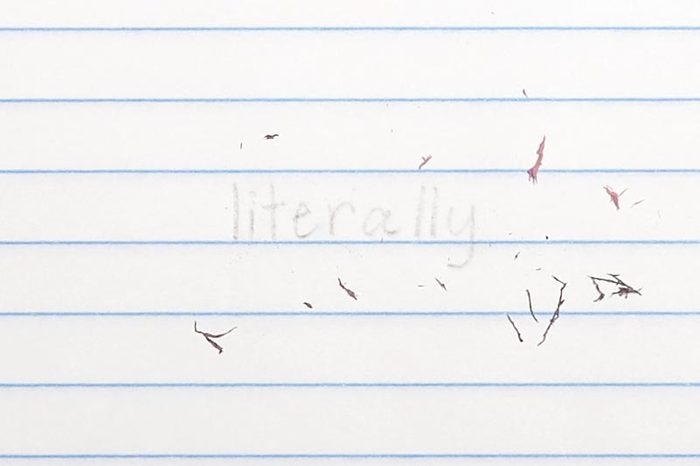
Instead of using "literally"
The word "literally" has a bad rep. It's often used incorrectly in speech and writing. Have you ever written a sentiment like "I'm literally starving"? If so, you're using the term in the wrong way. Literally means in a strict and accurate sense without exaggeration. People often use the literally to add exaggeration. It's best to oust this term from your writing to maintain clarity and precision. Good synonyms for "literally" to use when you need them are "unmistakably," "exactly," "plainly," and "virtually." Be cautious when using "10¢ words," however as they don't necessarily make you sound smarter.
11 / 13

Instead of using "stuff"
The word "stuff" is a generic placeholder that weakens writing rather than adding to it. Andrea Ayres at Quartz suggests that when this word appears "an additional burden is placed on the reader to figure out what the reader is talking about." Instead of using "stuff," find the word that defines the substance. Do you find yourself writing "I've got some stuff to do?" Alternately, write with specificity such as " I have to polish my resume and run errands" or "I've got to work on the project." You can also use better synonyms like "matter," "essence" or "principle." Still looking for the right stuff? Here are 9 funny words to improve your vocabulary.
12 / 13

Instead of using "amazing"
The word "amazing" has lost its prowess as a true definer of qualities or concepts that are amazing. So has the word "brilliant" since it can be used after any phrase to indicate general agreement. If you need a synonym that conveys true greatness and captures amazement there are a number of synonyms to choose from. If something is genuinely amazing give it a word that that matches its excellence. Try synonyms like "superb," "matchless," "world-class," or "transcendent." Need to make sure your emails are top-notch? Here are the most common email mistakes to avoid.
13 / 13
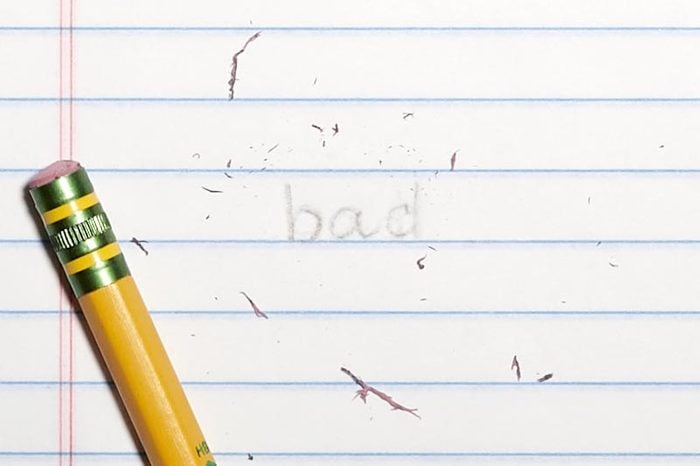
Instead of using "bad"
When you're expressing a negative idea or quality it's important to be careful and precise with the words you choose. Accuracy is especially crucial if you're writing in a formal or business context where conflict could arise. When you're describing a situation or aspect that's bad in some way, choose a word that offers a definitive description. Consider synonyms like "unfortunate," "subpar," "disagreeable," or "unfavorable." Read on to find out 41 grammar rules that will make you sound smarter.
Originally Published: December 17, 2019
Source: https://www.rd.com/list/synonyms-that-make-you-a-better-writer/
0 Response to "Used Over and Over Again Synonym"
Post a Comment